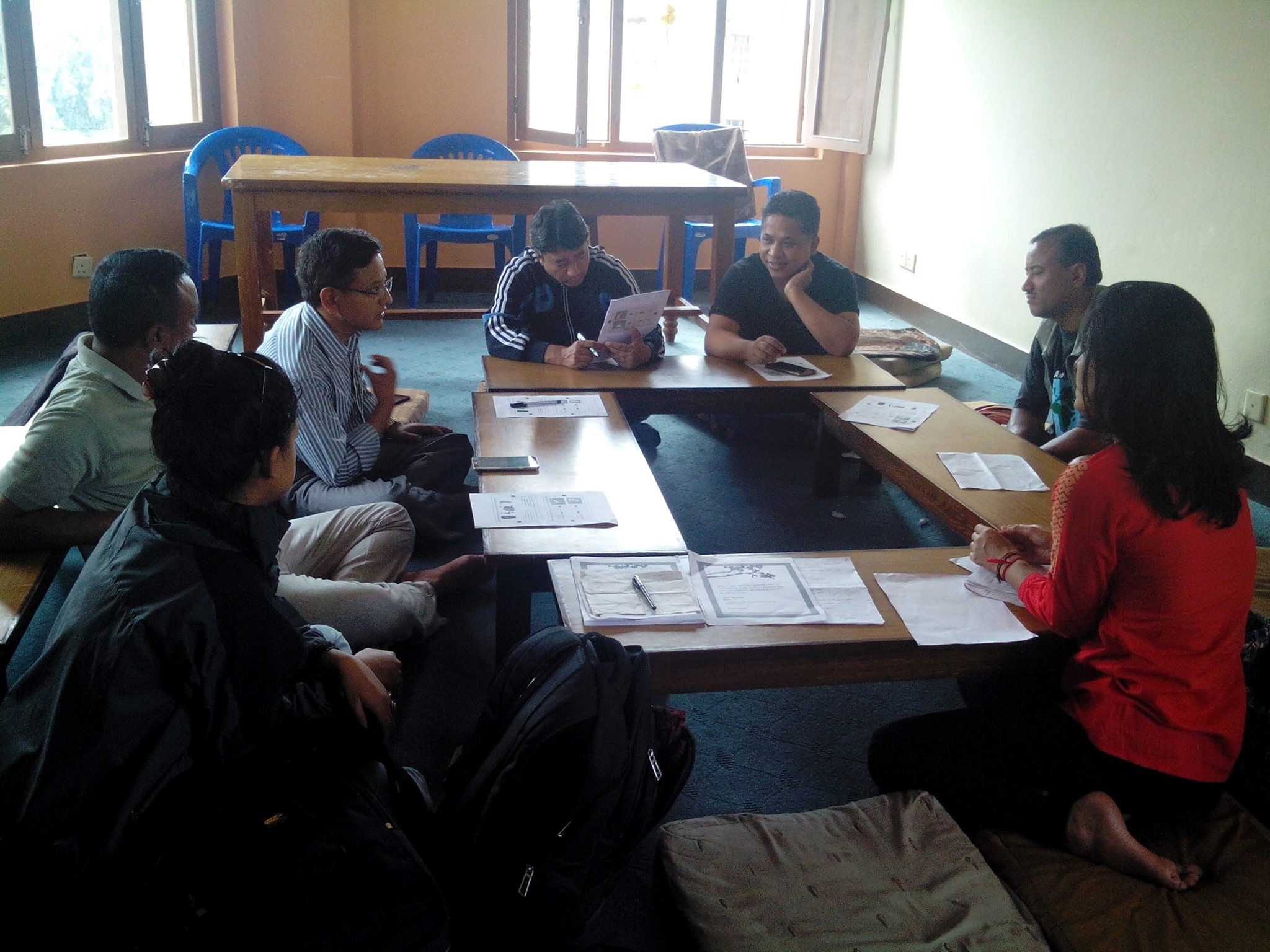
Community meeting to annul the agreement with Dipen Khadga’s waste collection team.
The agreement signed on 14th September of 2016 by Ishwor man Dongol, chairperson of KMC Ward no.15 Community Development Center(CDC) and Dipen Khadga, waste collection operator of Dallu Awas area for “community led household solid waste management and community composting” has been annulled. After many attempts from the community to involve Dipen Khadga’s team in new intervention on solid waste management of the community didn’t worked out as the team could not operate their service as per the agreements, community finally decided to annul the agreement by the end of November,2016.
On December of 2016, the community representatives’ team identified “Sisdol sarsafi Kendra Pvt. Ltd.” a better alternative as waste collection operator since sisdol has its own waste collection trucks, better organizational and human resource structure. Upon agreement from the company and the community representative team, the new waste management intervention is scheduled to kick off from the starting of January, 2017. Nawaraj Maskey, Chief Operator of the Sisdol sarsafai Kendra would be coordinating with the community and the Guthi team.
The very informal setting of the waste collection system and poor human resource structure of Dipen’s “Sambhunagar Sarsafai Pvt. Ltd.” coupled with the very weak infrastructure capacity of the company were the major factors that were seen as obstruction for the operation of new intervention to collect source segregated waste and composting of the organic portion of the waste. Although, the concept started to empower the informally set company with aim to involve active community participation in achieving the sustainable solid waste management goals of the community, at the later dates it was very evident that the community support would come in some fraction and the operation of the project would mostly depend on the capacity of the company to engage and co-ordinate with the community and provide regular waste collection service.
The high rate of employee turnover was observed to be one common shortcoming of almost all waste collection companies of Kathmandu, impacting on their waste collection schedules. The exact rates and reasons of employee turnover in the waste management companies needs to be studied in greater details in order to achieve effectiveness in the waste management services provided by the private companies. Formalized engagement and coordination of the private organizations working in solid waste management activities should be a way forward to retain the waste collecting employees by providing secured employment services.

